Search
Search Results
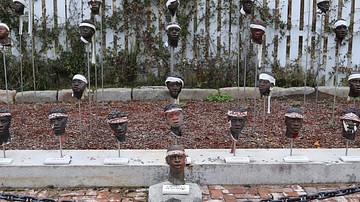
Image
Memorial to the 1811 German Coast Uprising
A memorial to the 1811 German Coast uprising, located at the Whitney Plantation Historic District, St. John the Baptist Parish, Louisiana, USA.
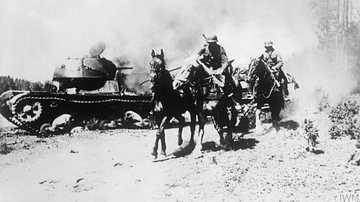
Image
German Troops on Horseback, Operation Barbarossa
A photograph showing German troops on horseback passing a destroyed Soviet T-26 tank during Operation Barbarossa, the attack by Adolf Hitler (1889-1945) on the USSR from June to December 1941. Horses were used by both sides for want of mechanised...
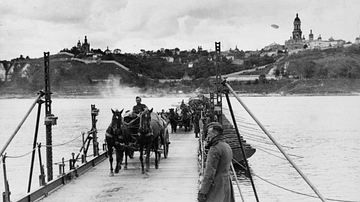
Image
German Troops, Smolensk, 1941
German horse-drawn transport crossing the Dnieper (Dnepr) after the battle of Smolensk in 1941 during Operation Barbarossa in the Second World War (1939-45). (Imperial War Museums)

Image
1811 German Coast Uprising
Depiction of the 1811 German Coast Uprising, a slave revolt in parts of the Orleans Territory in the United States, by an unknown artist, 1811.
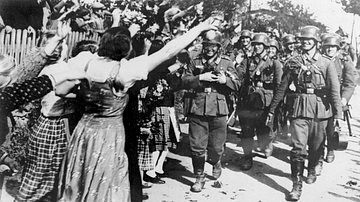
Image
German Troops Enter the Sudetenland
A photograph showing Sudeten Germans welcoming German troops during the first stage of Adolf Hitler's occupation of Czechoslovakia in October 1938. The Sudetenland was occupied as it contained some three million German speakers. (Imperial...
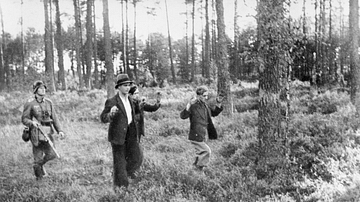
Image
German Troops & Polish Civilians
A photograph showing German troops and Polish civilians following the German invasion of Poland in September 1939. Photograph taken in the Tuchola Forest, 4 September 1939. (Imperial War Museums)
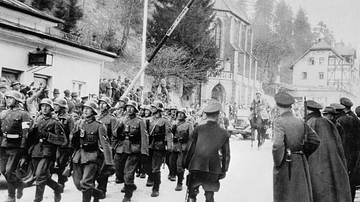
Image
German Troops Crossing the Austrian Border, 1938
A photograph showing German troops crossing the border with Austria during the Anschluss of March 1938. (Imperial War Museums)
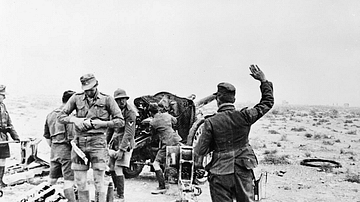
Image
German Artillery, Siege of Tobruk
German artillery at the Siege of Tobruk (1941-2) in the Western Desert Campaigns in North Africa during the Second World War (1939-45). (Imperial War Museums)
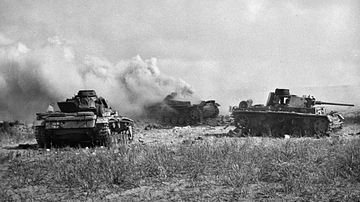
Image
Burnt-out German Panzers, Tunisia
A 1943 photograph showing three burnt-out German panzers, destroyed by Allied anti-tank guns in the Tunisian desert during the North Africa Campaign of the Second World War (1939-45). (Imperial War Museums)
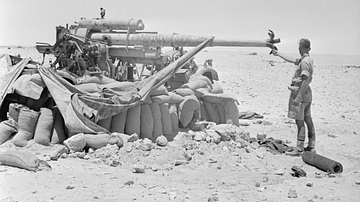
Image
Destroyed German 88mm Gun, El Alamein
A photograph of a German 88mm artillery gun destroyed at the First Battle of El Alamein (July 1942) during the Western Desert Campaigns (June 1940 to January 1943) in North Africa. (Imperial War Museums)